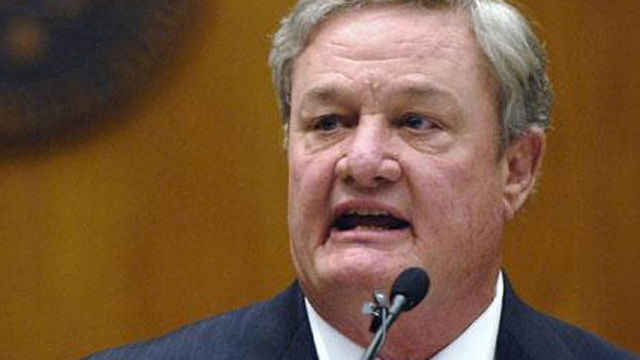Dalrymple Surrogate Blames The Legislature For Spending Boom

When you work in the criticism industry – and, let’s face it, that’s pretty much what this is – you can usually tell you’re hitting home on a topic when those you’re aiming at start firing back.
As my war veteran father says, you get the most flak when you’re over the target.
So when I saw that my good friend Jim Poolman, Vice Chairman of the North Dakota Republican Party, has a letter in the Grand Forks Herald today responding to a recent column I wrote about Governor Jack Dalrymple I felt a measure of satisfaction. I must have been over the target.
Also I think this pretty much confirms that Dalrymple is running again in 2016. He’s the candidate, and Republicans feel like they have to defend his record.
[mks_pullquote align=”right” width=”300″ size=”24″ bg_color=”#000000″ txt_color=”#ffffff”]If you’re going to defend the Governor’s record on spending, why not just defend the spending? Why shift blame to another branch of government?[/mks_pullquote]
My column, in case you missed it, wondered if Governor Dalrymple was the right sort of leader for post-oil boom North Dakota. I based my argument on the fact that Dalrymple isn’t exactly a unifying figure in the state as evidenced by the way he threw his fellow Republicans under the bus after a tough vote on anti-discrimination legislation in the state House. I also argued that it’s easy to be a leader when an oil boom is driving an tax revenue boom and you can say yes to everything.
Poolman says I’m all wet on that argument, but in making his case, he sort of proves my point. For instance, on spending, Poolman says we shouldn’t blame Dalrymlpe for it.
Instead, blame the Legislature!
“Port goes on to say that Dalrymple has led some kind of uncontrolled spending spree in Bismarck,” Poolman writes. “What Port does not acknowledge is that the governor can recommend funding, but only the Legislature can appropriate state funds. Because the Legislature is controlled by a two-thirds Republican majority, I guess he is saying most Republicans are guilty of overspending.”
If you’re going to defend the Governor’s record on spending, why not just defend the spending? Why shift blame to another branch of government?
And yes, I am saying that the Republican-led Legislature is guilty of overspending (Poolman disagrees), and if you talk to individual lawmakers in Bismarck they’ll tell you the same thing privately.
But back to Poolman’s attempt to excise the chief executive from the appropriations process for the political benefit of the chief executive, I think we need to remember that the Governor’s budget isn’t just a piece of paper. In North Dakota, the executive branch can actually submit legislation, and the executive budget ends up before lawmakers as spending bills.
The Governor sets the tone for spending. And while lawmakers can make changes to the budget, our Governor also wields the veto pen on the other end of the appropriations process. A line-item veto no less, making it even easier the Governor to pick and choose the spending he likes.
So Dalrymple has plenty of culpability for spending in North Dakota, but since I’m just a blogger with opinions according to Poolman, let me illustrate this with some facts from the current biennium. The graph below shows general fund spending in the 2011-2013 biennium, Dalrymple’s executive budget for the 2013-2015 biennium, and what Dalrymple ultimately signed into law for that biennium (see graph).
Did the Legislature take Dalrymple’s aggressive spending budget and put it on steroids? They absolutely did. Did Dalrymple sign all that spending into law? He absolutely did. Dalrymple issued only three vetoes in 2013, one of them a line item veto.
You can defend some of that spending, as Poolman does, by pointing out that it was a response to oil boom impacts. But I think we also need to admit that Dalrymple and lawmakers haven’t exactly been saying “no” to very many people.
Which brings me back to the point of my column. Dalrymple has only ever been Governor in an era where North Dakota could say “yes” to everything. Can he be an effective leader post-oil boom when “no” answers will be requisite?
The fact that Dalrymple is, in a lot of ways, an absentee leader on issues ranging from higher education to anti-discrimination policy (his handling of the SB2279 issue was a disgrace) doesn’t make me feel confident that he has the chops to hold his increasingly factioned political party together, let alone the state.
It very often seems like Jack Dalrymple doesn’t so much govern based on convictions but on what’s best for him politically. I think his actions as the chief executive over the last couple of years proves that, as does Poolman’s impulse to defend the Governor by shifting blame to the Legislature.





